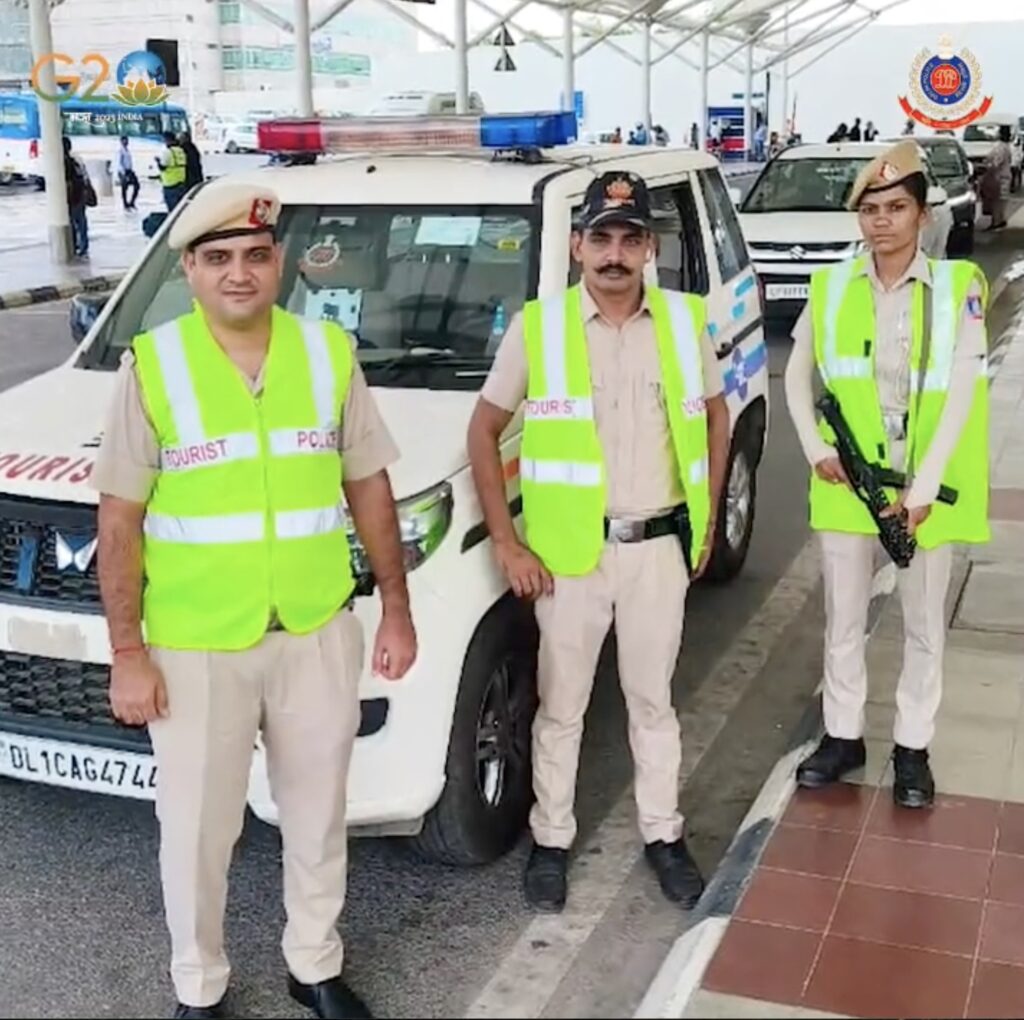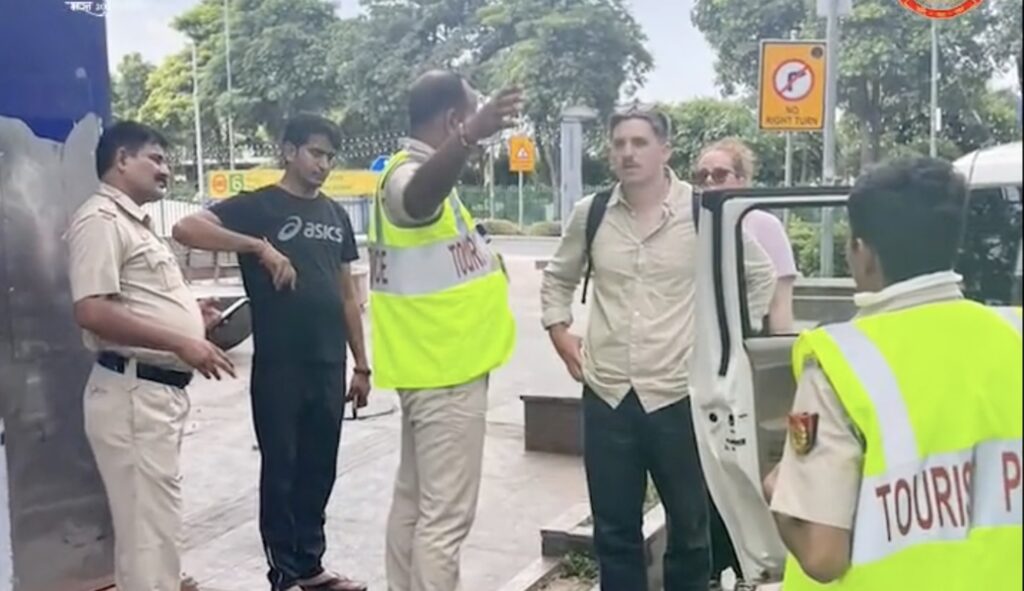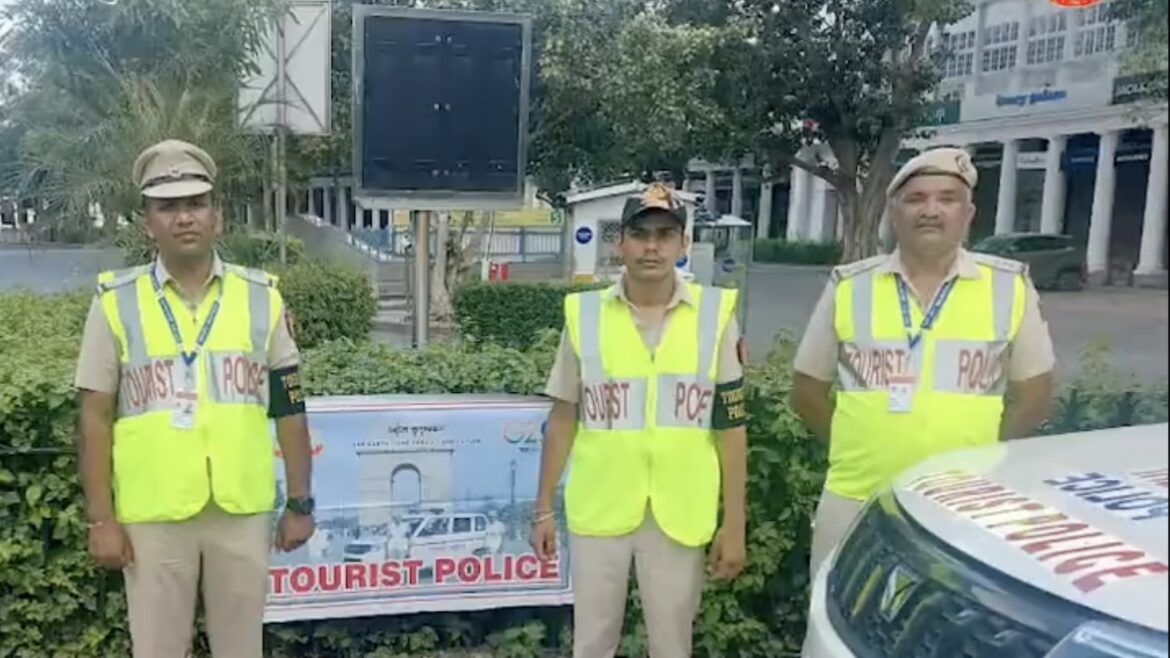Considering a trip to India? The U.S. government has issued a Level 2 travel advisory, urging citizens to exercise increased caution. The warning is a response to security risks from both crime and terrorism. This advisory is particularly significant in light of recent crimes against travelers from countries such as Israel, France, the United Kingdom, and Brazil.
The advisory can adversely affect India’s bid to emerge as a global tourism hub, especially when the Union Government, through the budget, is trying to increase infrastructural facilities for tourists. This raises a fundamental question: Why is India failing its ‘atithis’ (guests), when we claim to treat them as ‘devatas’ (gods)?
Tourist Police: A Laudable but Under-Implemented Initiative
The concept of tourist police emerged to address the unique vulnerabilities faced by visitors. Keralapioneered this initiative at the state level. In 2019, a pilot project was launched, and in March 2022, the Standing Committee on Transport, Tourism and Culture recommended its nationwide implementation.

The Committee recommended establishing and deploying a tourism police in every tourist space, as a separate wing of the police force, acknowledging that the safety of domestic and foreign tourists is paramount for India’s global tourism competitiveness. This recommendation stemmed from the understanding that, unlike conventional police, these units require specialized training in language, cultural sensitivity, and the specific needs of travelers.
But is the intent meeting on-ground implementation?
Nearly six years after the pilot project’s inception and three years since the parliamentary committee’s pan-India implementation recommendation, the tourist police initiative has remained largely confined to paper, with ground-level execution proving woefully inadequate. The States such as Uttar Pradesh, Madhya Pradesh, Delhi, Goa, Rajasthan, and Kerala have tourist police, but their presence has not ensured a safe environment.
The recent incidents starkly illustrate this systemic failure, a French tourist was allegedly raped in Udaipur, Rajasthan on June 22, where the accused lured the woman from a party at a local restaurant to his apartment on the pretext of sightseeing, despite Rajasthan being among the states with established tourist police units. Similarly, an incident involving Brazilian-Spanish dual-nationality tourists in Jharkhand, a state without tourist police, demonstrates that the absence or presence of these specialized units has made little difference in ensuring tourist safety.
This persistent failure to implement effective tourist protection measures has led to a crisis of confidence, justifying international travel advisories that increasingly portray India as unsafe for foreign travelers. According to global tourism safety indices, countries like Singapore and Thailand have made significant progress in reducing crimes against tourists through coordinated policy and community action. India must learn from such models to close the gap and compete as a premier destination.
Tourist Police: The Need for Reform
To restore confidence, India needs a nationwide, professional tourist police force with a clear mandate and visible identity, distinct from the general police. The Ministry of Home Affairs should audit the current status of tourist police across states, assessing deployment, gender balance, case handling, and crime statistics, especially those involving women. This assessment will become the bedrock for the reforms that the Tourist Police needs to achieve its mandate, along with an earlier study submitted to the Ministry of Tourism suggesting certain measures for better law enforcement by tourist police.
Beyond this, the force requires rigorous and sustained training, setting aside the current short-duration training programs, emphasizing behavioral etiquette, sensitization of the local police towards the needs of foreigners, cross-cultural communication, and effective law enforcement, as exemplified by Sri Lanka’s 7-day induction and annual refresher programs. Learning from models like Ireland’s ITAS or the USA, the authorities should consider providing immediate emotional and practical assistance to victims, enabling online reporting or even teleconferencing for testimony from their home countries to streamline grievance redressal.

In addition to this, technology-enabled safety measures are paramount: widespread CCTV at key attractions, a universally publicized 24×7 multi-lingual toll-free helpline, and dedicated digital platforms for information and feedback. Furthermore, Fast-track courts should be set up immediately to try cases of crime against foreigners, ensuring timely justice. Apart from this, good Samaritanism needs to be incentivized by awarding the local people who help foreign travelers in difficult situations like these.
Robust accountability mechanisms and regular safety audits are essential to ensure consistent performance. India cannot realistically aspire to global leadership while failing to protect its guests. An urgent, visible commitment to tourist safety is crucial to restore international confidence and truly embody ‘Atithi Devo Bhava.’
Disclaimer: The opinions and views expressed in this article/column are those of the author(s) and do not necessarily reflect the views or positions of South Asian Herald.






